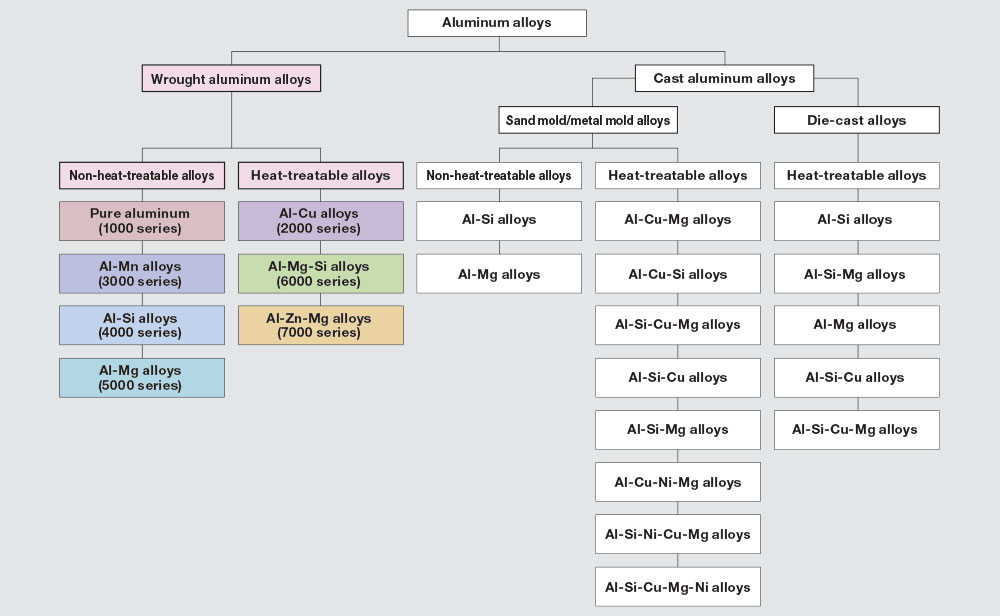Alcast Company for Dummies
Table of ContentsThe 15-Second Trick For Alcast CompanyAn Unbiased View of Alcast CompanyAlcast Company - An OverviewAlcast Company Fundamentals ExplainedNot known Details About Alcast Company Not known Details About Alcast Company
The refined distinction lies in the chemical material. Chemical Comparison of Cast Aluminum Alloys Silicon promotes castability by minimizing the alloy's melting temperature level and improving fluidity during casting. It plays an essential role in enabling complex mold and mildews to be loaded accurately. Additionally, silicon adds to the alloy's strength and wear resistance, making it important in applications where longevity is vital, such as auto components and engine components.It also improves the machinability of the alloy, making it much easier to process right into completed items. In this way, iron adds to the overall workability of light weight aluminum alloys.
Manganese contributes to the toughness of aluminum alloys and boosts workability. Magnesium is a lightweight aspect that provides toughness and impact resistance to light weight aluminum alloys.
The smart Trick of Alcast Company That Nobody is Discussing
It permits the production of light-weight components with exceptional mechanical properties. Zinc improves the castability of light weight aluminum alloys and aids control the solidification process during casting. It boosts the alloy's strength and hardness. It is often located in applications where elaborate shapes and great details are needed, such as attractive castings and specific auto components.

The primary thermal conductivity, tensile stamina, yield toughness, and elongation vary. Select ideal raw products according to the efficiency of the target item generated. Amongst the above alloys, A356 has the highest thermal conductivity, and A380 and ADC12 have the most affordable. The tensile limitation is the opposite. A360 has the most effective return toughness and the greatest prolongation price.
The Definitive Guide to Alcast Company

In precision casting, 6063 is well-suited for applications where intricate geometries and high-grade surface coatings are visit site critical. Instances include telecommunication units, where the alloy's exceptional formability permits for sleek and aesthetically pleasing styles while keeping structural stability. Likewise, in the Illumination Solutions sector, precision-cast 6063 components produce elegant and efficient illumination components that require intricate shapes and excellent thermal efficiency.
It results in a better surface coating and better rust resistance in A360. The A360 exhibits remarkable prolongation, making it ideal for complicated and thin-walled parts. In precision casting applications, A360 is fit for markets such as Customer Electronics, Telecommunication, and Power Devices. Its improved fluidness enables for complex, high-precision elements like smart device coverings and communication device housings.
Alcast Company for Beginners
Its special buildings make A360 an important option for precision casting in these sectors, improving product sturdiness and quality. Aluminum alloy 380, or A380, is a commonly made use of casting alloy with several unique features. It offers outstanding castability, making it a suitable option for precision spreading. A380 exhibits great fluidity when molten, guaranteeing intricate and thorough molds are precisely duplicated.
In precision spreading, light weight aluminum 413 radiates in the Consumer Electronics and Power Equipment markets. This alloy's premium deterioration resistance makes it an exceptional option for outside applications, ensuring lasting, sturdy products in the stated sectors.
Alcast Company Things To Know Before You Buy
Once you have made a decision that the aluminum pass away casting procedure is suitable for your task, a vital next step is selecting the most appropriate alloy. The aluminum alloy you select will substantially impact both the casting process and the properties of the last item. Due to this, you have to make your choice meticulously and take an educated approach.
Establishing the most appropriate light weight aluminum alloy for your application will suggest weighing a broad array of features. The very first classification addresses alloy attributes that impact the production procedure.
See This Report on Alcast Company
The alloy you select for die spreading directly impacts numerous facets of the casting process, like how easy the alloy is to work with and if it is susceptible to casting flaws. Hot breaking, additionally called solidification fracturing, is a typical die casting flaw for light weight aluminum alloys that can cause internal or surface-level splits or cracks.
Particular light weight aluminum alloys are a lot more vulnerable to hot fracturing than others, and your choice ought to consider this. One more usual defect located in the die casting of light weight aluminum is die soldering, which is when the cast stays with the die wall surfaces and makes ejection challenging. It can harm both the actors and the die, so you need to search for alloys with high anti-soldering residential or commercial properties.
Deterioration resistance, which is currently a notable characteristic of light weight aluminum, can vary substantially from alloy to alloy and is an essential particular to take into consideration depending on the ecological conditions your item will be exposed to (Aluminum Castings). Put on resistance is an additional residential property typically sought in light weight aluminum products and can set apart some alloys